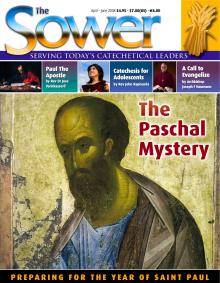I began this series of articles on the Parables of Jesus by drawing attention to the fact that Jesus indicates that the parable of the Sower was a key to interpreting all the parables. The Sower parable seems to provide a process in which the Word of God, engaging with a human mind and heart, gradually overcomes various obstacles and eventually becomes fruitful. The fruitfulness is precisely the transformation of the human person (mind and heart) that takes places when the Word of God is permitted to play a leading role in our lives and to challenge ways of thinking and behaving that arise from our fallen self or from the patterns of society that have been absorbed.
It is significant that Jesus relates other parables about seeds growing as well as related parables about planting a vine in a vineyard. Perhaps all of these parables are linked to the parable of the Sower but highlight particular dimensions that are contained in the Sower in order to draw out the greater depths of the Sower parable. Thus, for example, the parable of the darnel or weeds is linked to the ‘thorny soil’ of the Sower parable. The parable of the Mustard Seed perhaps reveals more about the fruit of the ‘productive soil’. The parables of the Vine, the Vineyard and the Tenants, take us a step further and highlight the social dimensions of the Kingdom – Israel, the Church and our joint responsibilities for the Gospel message.
The rest of this online article is available for current Guild members.
This article is from The Sower and may be copied for catechetical purposes only. It may not be reprinted in another published work without the permission of Maryvale Institute. Contact [email protected]


















